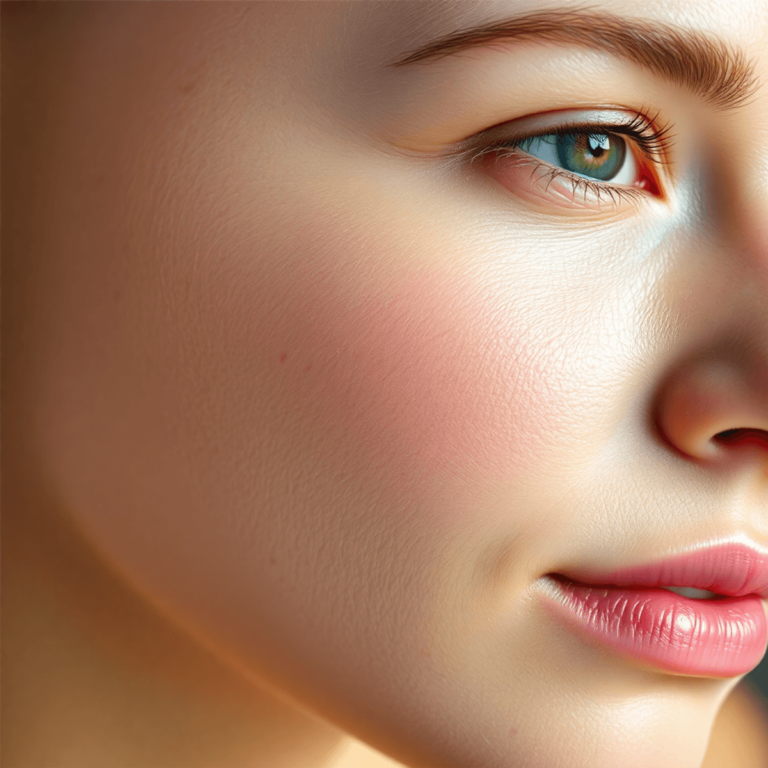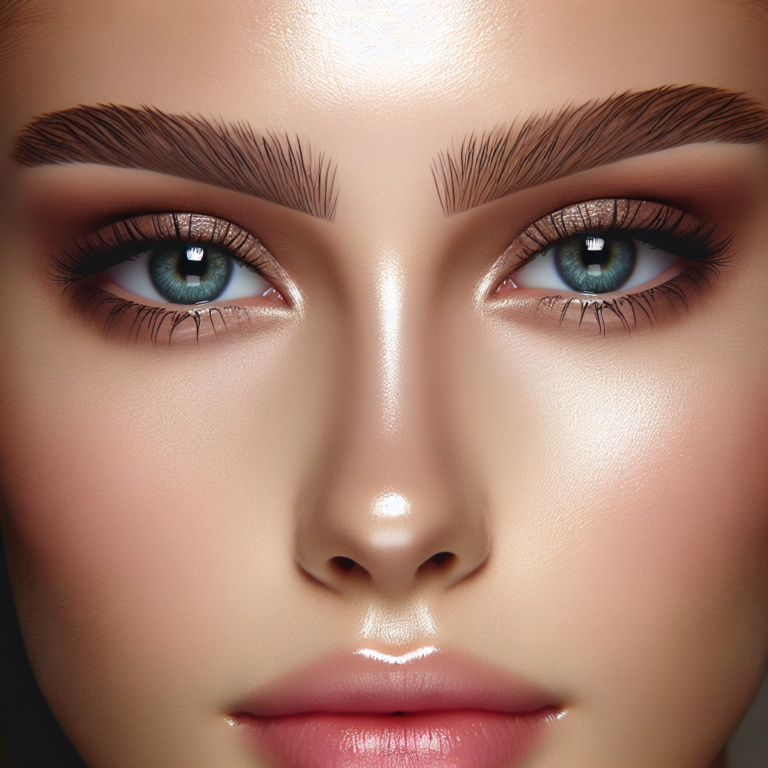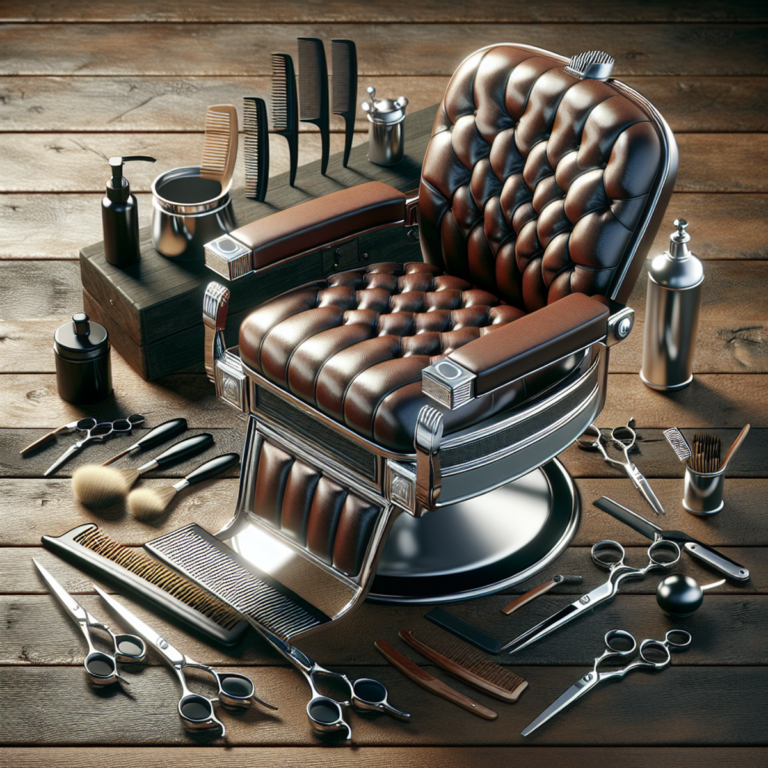best acne treatment for home

Introduction
Acne is a common skin condition that affects millions of individuals worldwide, often leading to feelings of embarrassment and low self-esteem. The presence of breakouts can significantly impact one’s confidence, influencing social interactions and personal relationships.
Finding effective home treatments for acne is essential for those seeking alternatives to commercial products. Home remedies can offer a more natural approach, often being more affordable and accessible. Many individuals prefer these methods as they allow for personalized skincare routines without the harsh chemicals found in some over-the-counter treatments.
In this article, you will discover a comprehensive guide to the best acne treatment for home, including various acne remedies that have shown promise in managing breakouts. You will learn about:
- Popular home remedies and their effectiveness
- Tips for preventing future breakouts
- Strategies for maintaining clear skin
By the end, you will be equipped with practical knowledge to help you tackle your skincare challenges effectively.
Understanding Acne
Acne is a common skin condition that occurs when hair follicles become clogged with oil and dead skin cells. It often appears as pimples, blackheads, or cysts on the face, back, and shoulders. Understanding how acne develops can provide insights into treatment options and prevention strategies.
Types of Acne
Different types of acne are characterized by their appearance and underlying causes:
- Blackheads: Open comedones that occur when a hair follicle is clogged with oil and dead skin. The surface oxidizes, turning dark.
- Whiteheads: Closed comedones that form under the skin’s surface. They appear as small white bumps.
- Cystic Acne: A severe form of acne characterized by deep, painful lumps beneath the skin. Cysts can lead to scarring if left untreated.
Common Causes of Acne
Several factors contribute to the development of acne:
- Hormonal Changes: Fluctuations in hormones, especially during puberty, menstruation, or pregnancy, can increase oil production in the skin.
- Diet: Certain foods may worsen acne. High glycemic index foods and dairy products are frequently linked to breakouts.
- Bacteria: The presence of Propionibacterium acnes bacteria on the skin can trigger inflammation and worsen acne.
- Genetics: A family history of acne may increase your likelihood of experiencing similar skin issues.
Maintaining good skin health involves recognizing these causes and addressing them through appropriate treatments and lifestyle choices. By understanding the various types of acne and their origins, you can better tailor your approach to achieving clearer skin.
Benefits of Home Treatments for Acne
Using home treatments for acne offers several advantages over commercial products. Here’s why these natural remedies can be a smart choice:
- Cost-effective solutions: Many home remedies are derived from everyday ingredients found in your kitchen or local grocery store. This affordability makes it easier to maintain a consistent skincare routine without breaking the bank.
- Accessibility: You can easily access popular home remedies like tea tree oil, honey, and aloe vera without needing to visit a pharmacy or dermatologist. This convenience allows you to start treatment whenever breakouts occur.
- Fewer chemicals: Home treatments often contain fewer harsh chemicals compared to many over-the-counter products. This can be particularly beneficial for those with sensitive skin or allergies to certain ingredients.
- Personalization: You have the flexibility to create custom blends tailored to your skin’s specific needs. Experimenting with different combinations of natural ingredients may lead to discovering what works best for you.
- Holistic approach: Many natural remedies not only target acne but also promote overall skin health. Ingredients like green tea and zinc offer additional benefits such as reducing inflammation and improving skin tone.
These factors make home remedies an appealing option for managing acne effectively while ensuring safety and accessibility. Exploring these alternatives empowers you on your journey toward clearer skin.
Top Home Remedies for Acne
1. Tea Tree Oil
Tea tree oil is a powerful natural remedy known for its impressive antibacterial properties. This essential oil, derived from the leaves of the Melaleuca alternifolia tree, has gained recognition in the skincare community for its effectiveness against acne-causing bacteria. Here’s how it works and how you can use it safely.
How Tea Tree Oil Works Against Acne
The primary reason tea tree oil is effective against acne lies in its ability to combat bacteria. Research indicates that tea tree oil can kill Propionibacterium acnes, the bacteria responsible for acne breakouts. Its anti-inflammatory properties also help reduce redness and swelling associated with active pimples, making it a popular choice among those seeking relief from stubborn breakouts.
Recommended Application Methods
To reap the tea tree oil benefits, follow these guidelines:
- Dilution is Key: Always dilute tea tree oil with a carrier oil, such as coconut or jojoba oil, before applying it to your skin. A common ratio is one part tea tree oil to nine parts carrier oil.
- Patch Test First: Before applying to larger areas of your face, perform a patch test on a small section of skin to check for any adverse reactions.
- Targeted Treatment: Use a cotton swab to apply the diluted mixture directly onto blemishes. This method allows you to target specific spots without affecting the surrounding skin.
Precautions to Consider
While tea tree oil is generally safe for most individuals, some precautions should be taken:
- Skin Sensitivity: Individuals with sensitive skin should be cautious when using tea tree oil. If irritation occurs, discontinue use immediately.
- Avoid Sensitive Areas: Do not apply tea tree oil near the eyes or on broken skin as this may lead to irritation or discomfort.
- Consultation Recommended: If you are pregnant, nursing, or have underlying skin conditions, consulting with a healthcare provider before using tea tree oil is advisable.
Incorporating tea tree oil into your skincare routine can offer significant benefits for those struggling with acne. Its antibacterial properties tackle the root causes of breakouts while providing soothing relief from inflammation. With proper dilution and careful application, this home remedy can contribute positively to your journey toward clearer skin.
As you explore other remedies, keep in mind how each can complement your overall approach to managing acne effectively.
2. Apple Cider Vinegar (ACV)
Apple Cider Vinegar (ACV) is known for its potential benefits in treating acne due to its natural composition. The presence of citric acid in ACV may contribute to its effectiveness as a topical treatment. This organic acid can help exfoliate the skin, removing dead cells and potentially preventing clogged pores.
Benefits of ACV for Acne:
- Antimicrobial Properties: ACV has been noted for its ability to kill certain bacteria, which can be beneficial in reducing acne-causing pathogens on the skin.
- pH Balancing: It may help restore the skin’s natural acidity, which can enhance its protective barrier against breakouts.
Drawbacks:
- Skin Irritation: ACV can be harsh on sensitive skin. Some individuals may experience redness or discomfort if used undiluted.
- Limited Scientific Support: While many people report positive results, substantial scientific evidence backing ACV’s efficacy specifically for acne is limited.
Application Methods:
- Dilution is Key: Always dilute ACV with water before application. A common ratio is one part ACV to three parts water.
- Spot Treatment: Use a cotton ball to apply the diluted solution directly onto pimples. Avoid applying it over large areas of sensitive skin.
- Patch Test Recommended: Conduct a patch test on a small area to check for adverse reactions before full application.
Incorporating ACV into your skincare routine requires caution, especially if you have sensitive skin. If irritation occurs, discontinue use immediately and consider alternatives such as tea tree oil benefits or zinc for skin health.
3. Zinc
Natural ingredients have gained attention for their effectiveness in treating acne, with zinc playing a significant role. Known for its anti-inflammatory properties, zinc helps in reducing redness and irritation associated with acne lesions. Research indicates that zinc can improve skin health through the following mechanisms:
- Reduction of Inflammation: Zinc assists in lowering the production of inflammatory substances in the skin, leading to a calmer appearance of acne-prone areas.
- Regulation of Oil Production: By balancing sebum levels, zinc can prevent pores from becoming clogged, which is essential for minimizing breakouts.
Incorporating zinc into your skincare routine can be achieved through various methods:
- Topical Application: Look for creams or ointments that contain zinc oxide. These products can be directly applied to affected areas to provide localized relief.
- Oral Supplements: Zinc supplements can contribute to overall skin health. Dosages vary, so consulting with a healthcare professional is advisable before starting any new supplement regimen.
When combined with other natural remedies like tea tree oil, honey and cinnamon mask, or aloe vera, zinc can enhance their effectiveness. Each ingredient serves a purpose in combating acne, whether it’s through antibacterial properties or soothing effects.
Incorporating zinc into your skincare approach not only targets existing blemishes but also supports long-term skin health and clarity.
4. Honey and Cinnamon Mask
Natural ingredients have gained popularity for their effectiveness in treating acne. The combination of honey and cinnamon offers a powerful solution for those struggling with breakouts.
How Honey and Cinnamon Help with Acne
- Honey’s Antibacterial Properties: Honey is known for its ability to fight bacteria, making it an ideal ingredient for acne treatment. Its natural enzymes help to cleanse the skin while providing moisture.
- Cinnamon’s Anti-inflammatory Effects: Cinnamon complements honey by reducing inflammation associated with acne lesions. This can help soothe irritated skin and promote healing.
DIY Honey and Cinnamon Mask Recipe
Ingredients:
- 2 tablespoons of raw honey
- 1 teaspoon of ground cinnamon
Instructions:
- Mix the honey and cinnamon in a bowl until you achieve a smooth paste.
- Cleanse your face with a gentle cleanser and pat dry.
- Apply the mask evenly over your face, focusing on areas with active breakouts.
- Leave the mask on for 10-15 minutes.
- Rinse off with warm water and gently pat your skin dry.
Incorporating this honey and cinnamon mask for acne into your skincare routine can provide relief from blemishes while nurturing your skin’s natural balance. As you explore different remedies like tea tree oil benefits, ACV for acne, and zinc for skin health, consider how each can play a role in achieving clearer skin.
The soothing effects of this mask may be an excellent complement to other treatments such as aloe vera for pimples or enjoying the green tea benefits for skin health, enhancing your overall approach to managing acne effectively.
5. Aloe Vera
Aloe vera has gained recognition for its effectiveness in treating various skin conditions, including acne. This natural powerhouse is packed with soothing properties that can calm irritated skin and significantly reduce redness associated with acne lesions. Here’s how aloe vera can be beneficial:
- Anti-inflammatory Effects: Aloe vera contains compounds like glucomannan and gibberellins, which help reduce inflammation and promote healing.
- Hydration: The gel is highly moisturizing without clogging pores, making it suitable for all skin types.
- Antibacterial Properties: It helps combat the bacteria that contribute to acne, similar to the way tea tree oil benefits the skin.
To effectively use aloe vera for pimples:
- Pure Aloe Vera Gel: Use fresh gel from the plant or store-bought pure aloe vera gel. Make sure it’s free from additives or alcohol.
- Spot Treatment: Apply a small amount directly onto blemishes after cleansing your face. Leave it on overnight for optimal results.
- All-Over Application: For those with extensive breakouts, apply a thin layer of aloe vera gel across blemish-prone areas. This can be part of your daily skincare routine.
Incorporating aloe vera into your regimen can complement other treatments such as honey and cinnamon mask for acne, providing a holistic approach to skincare. Its gentle nature makes it an excellent choice for sensitive skin types while effectively addressing issues related to acne.
As you explore different home remedies, look out for additional benefits, such as those offered by green tea benefits for skin or zinc for skin health, to enhance your overall skincare journey.
6. Green Tea
Natural ingredients play a significant role in treating acne, with green tea standing out due to its unique properties. Rich in antioxidants, particularly polyphenols, green tea offers numerous benefits for skin health. These compounds help:
- Fight Inflammation: Polyphenols reduce inflammation, a key factor in acne development.
- Control Oil Production: By regulating sebum production, green tea helps prevent clogged pores that lead to breakouts.
To harness the benefits of green tea, consider these application methods:
- Topical Application:
- Brew green tea bags in hot water.
- Allow the bags to cool down.
- Apply them directly to affected skin areas for about 15-20 minutes.
- This can provide soothing relief and reduce redness.
- Drink brewed green tea daily.
- Aim for 2-3 cups to enhance overall skin health from within.
- The antioxidants can improve your body’s ability to combat acne-causing bacteria.
Incorporating green tea into your skincare routine can complement other remedies such as tea tree oil, ACV for acne, or the honey and cinnamon mask for acne. It serves as an excellent addition alongside zinc for skin health and aloe vera for pimples. With consistent use, you may notice improvements in skin clarity and reduced breakouts.
7. Witch Hazel
Witch hazel is a natural astringent derived from the bark and leaves of the Hamamelis virginiana plant. Its effectiveness in treating acne comes from several key properties:
- Anti-inflammatory: Witch hazel can help reduce redness and inflammation associated with active breakouts.
- Antimicrobial: It has properties that may inhibit the growth of bacteria, potentially preventing future pimples.
- Astringent qualities: This ingredient helps tighten skin and minimize the appearance of pores, which can reduce excess oil production.
When considering how to use witch hazel for acne, proper application tips are essential:
- Dilution: Mix witch hazel with water before applying it to your skin. This reduces its potency, making it gentler for sensitive skin types.
- Cotton pad application: Soak a cotton pad in diluted witch hazel and gently apply it to affected areas. This method allows for targeted treatment on existing pimples while preparing your skin for long-term benefits.
Incorporating witch hazel into your skincare routine can be beneficial for those looking to manage acne effectively. Regular use may aid in preventing new breakouts while addressing current pimples. For those wondering how to remove pimples naturally and permanently, using witch hazel could be an effective option alongside other treatments like tea tree oil benefits, ACV for acne, or honey and cinnamon mask for acne.
If you are seeking ways to get rid of pimples overnight or looking for methods on how to get rid of pimples on face, witch hazel might be a valuable addition to your regimen.
8. Sulfur
Sulfur is a powerful natural ingredient in skincare, particularly known for its effectiveness in treating acne. Its unique properties enable it to:
- Dry Out Active Spots: Sulfur effectively reduces excess oil production and dries out pimples without causing significant irritation. This makes it suitable for various skin types, including sensitive skin.
- Minimize Peeling and Irritation: Unlike some harsher treatments, sulfur does not lead to excessive peeling or redness, making it an appealing option for those looking for gentler alternatives.
Available in multiple forms, sulfur can be found in:
- Creams and Lotions: Generally easy to apply, these products allow for broader coverage on affected areas.
- Spot Treatments: Targeted applications focus directly on individual pimples, providing concentrated action where needed.
Incorporating sulfur into your skincare routine may enhance treatment outcomes, especially if combined with other natural remedies like tea tree oil, honey and cinnamon mask, or aloe vera. Each of these ingredients brings its own unique benefits—tea tree oil benefits include antibacterial properties; zinc for skin health plays a role in reducing inflammation; while green tea benefits for skin help control excess oil production.
For best results, consider combining sulfur treatments with a consistent skincare regimen that includes gentle cleansing and moisturizing. Always patch test new products to ensure compatibility with your skin type before full application.
Lifestyle Changes to Support Acne Treatment
Maintaining a Balanced Diet For Clear Skin: What To Eat And Avoid?
Diet plays a significant role in skin health. Foods you consume can influence inflammation and oil production, both of which contribute to acne development. Understanding what to include and what to limit is essential for achieving clear skin.
Foods to Include:
- Fruits and Vegetables: Rich in antioxidants, they help combat oxidative stress. Berries, oranges, spinach, and kale are excellent choices.
- Whole Grains: Opt for whole grains over refined carbohydrates. Brown rice, quinoa, and oats can stabilize blood sugar levels.
- Healthy Fats: Incorporate sources of omega-3 fatty acids such as salmon, walnuts, and flaxseeds. These help reduce inflammation.
- Lean Proteins: Chicken, turkey, and legumes are beneficial. They provide essential amino acids for skin repair.
Foods to Avoid:
- High Glycemic Index Foods: Sugary snacks and white bread can spike insulin levels, leading to increased oil production. Avoid processed foods that contain refined sugars.
- Dairy Products: Some studies suggest a link between dairy consumption and acne flare-ups. Consider reducing milk and cheese intake if you’re prone to breakouts.
- Fried and Fatty Foods: Foods high in unhealthy fats can exacerbate inflammation. Limit fast food and fried items.
Additional Considerations
Hydration is crucial for maintaining skin health. Drinking plenty of water supports detoxification and helps keep the skin hydrated. Additionally, managing stress through activities like yoga or meditation can also positively impact skin conditions.
By focusing on a balanced diet rich in nutrients while avoiding potential triggers, you create a foundation for clearer skin. These dietary adjustments not only support acne treatment but also enhance overall well-being.
Managing Stress Levels Effectively To Prevent Breakouts: Tips And Techniques You Can Try Today!
Stress can significantly impact your skin health, often leading to increased oil production and breakouts. Understanding the connection between your mental state and skin condition is essential. Here are some effective techniques to manage stress that may help in preventing acne flare-ups:
1. Mindfulness Meditation
Practicing mindfulness helps reduce anxiety levels. Spend a few minutes each day focusing on your breath or visualizing a calming scene.
2. Regular Exercise
Physical activity boosts endorphins, which can enhance mood and reduce stress. Aim for at least 30 minutes of exercise most days, whether it’s walking, yoga, or dancing.
3. Adequate Sleep
Sleep deprivation exacerbates stress and impacts skin health. Strive for 7-9 hours of quality sleep per night.
4. Limit Caffeine and Sugar
High intake of caffeine and sugar can increase cortisol levels, a hormone associated with stress. Opt for herbal teas or water and whole foods instead.
5. Social Connections
Maintain relationships with friends and family. Talking about your feelings can provide emotional support and reduce stress.
Implementing these strategies not only helps in managing stress but also supports a balanced diet’s impact on skin health. Combining these lifestyle changes creates a holistic approach to achieving clearer skin over time.
Avoiding Common Acne Triggers In Your Daily Life And Skincare Routine
Managing acne involves not only effective treatments but also avoiding irritants that can worsen breakouts. Recognizing potential triggers is crucial for maintaining clear skin. Here are some common irritants to watch out for:
Irritants That Can Exacerbate Existing Pimples: What To Watch Out For?
- Harsh Cleansers: Products containing sulfates or strong fragrances can strip the skin of natural oils, leading to irritation and increased oil production.
- Excessive Scrubbing: Over-exfoliating or scrubbing the skin vigorously can damage the protective barrier, resulting in inflammation and aggravating existing pimples.
- Comedogenic Ingredients: Ingredients such as coconut oil, certain silicones, and heavy waxes may clog pores. Look for non-comedogenic labels when selecting skincare products.
- Touching Your Face: Frequent touching transfers bacteria and oils from your hands to your face, increasing the risk of breakouts. Awareness of this habit is key.
- Makeup Products: Heavy makeup can trap oil and dirt on the skin. Opt for lightweight, non-comedogenic formulations to reduce the likelihood of clogged pores.
- Stressful Environments: Environmental stressors like pollution can contribute to skin irritation. Regular cleansing helps remove these impurities.
- Dietary Triggers: Some individuals may find that dairy or high-sugar foods trigger their acne. Keeping a food diary can help identify potential links between diet and breakouts.
Practical Tips for a Clearer Complexion
- Choose gentle, hydrating cleansers free from harsh chemicals.
- Limit exfoliation to 1-2 times per week using mild exfoliants.
- Always remove makeup before bed to prevent buildup.
- Maintain a consistent skincare routine tailored to your skin type, focusing on hydration and oil control.
Being mindful of these irritants enables you to create a skincare routine that promotes clear skin while minimizing factors that could lead to further breakouts.










